While I was lucky enough to dodge the worst of the Freshman Fifteen in college, I’ve found myself gaining a little bit of weight here in the Peace Corps. I don’t have a scale in my house, but I’ve been able to gauge the changes in my body by the way my clothes fit and how I look in the mirror. And in my first few weeks after PST, I wasn’t happy with what I was seeing.
After months of eating carbs for breakfast, lunch, and dinner (I’m talking meals consisting of fried potatoes, rice, and a healthy serving of bread on the side), my pants were tighter around the waist, and I noticed that I was bloating like crazy during the day.
There’s a saying in Peace Corps that men lose weight during their service while women gain a few extra pounds.
I wasn’t alone. There’s a saying in Peace Corps that men lose weight during their service while women gain a few extra pounds, and from my experience that seems to hold true! There are a few exceptions, of course, but many of my female Peace Corps friends have expressed concerns about the way their Albanian diets have affected their figures.
It’s incredibly important for volunteers (or anyone living in a new country) to find ways to remain healthy and eat a well balanced diet. So without further ado, here are my 5 tips for maintaining healthy eating habits:
*Full disclaimer: I am not in any way qualified to give professional health or dietary advice. These are just some rules I personally follow for a happy and healthy Peace Corps service.
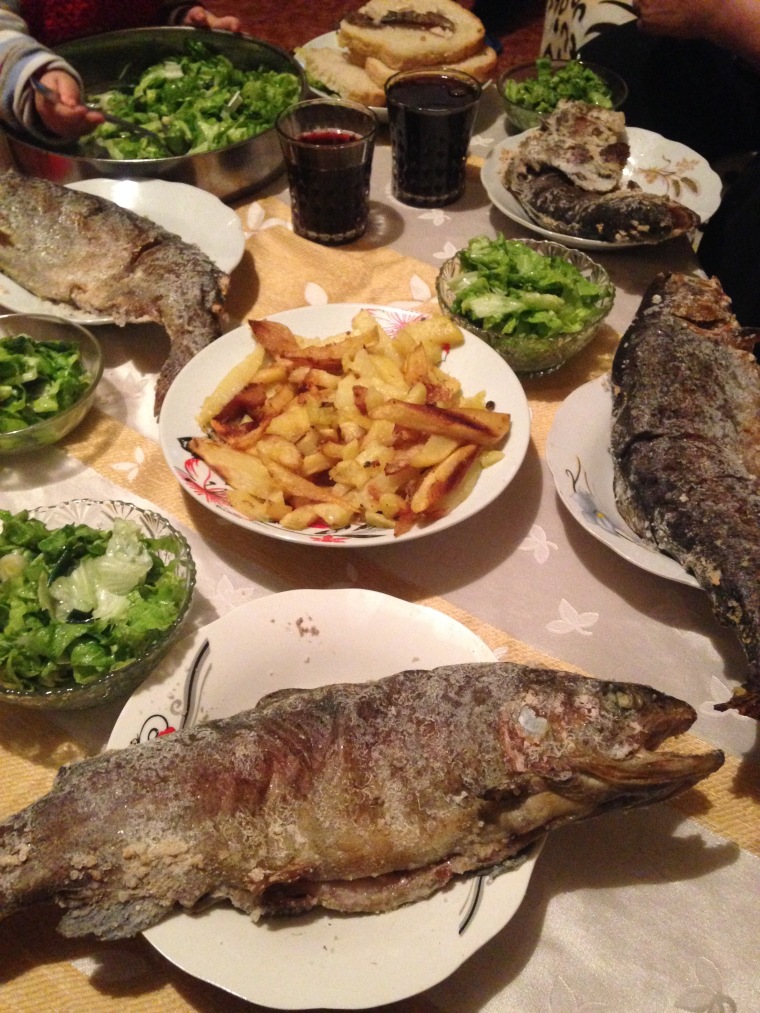
TIP #1: Take control over your diet as much as possible during Pre-Service Training (PST)
During PST, volunteers live with a host family and are expected to eat breakfast and dinner at home and lunch out in the community. Every host family is different. Some families have less money and eat more simply while others can serve more elaborate meals.
But generally in Albania, you can expect to be served:
- Lots and lots of carbs (an abundance of bread, pasta, and rice)
- In-season fruits and vegetables
- Processed goods (like the ubiquitous Belino croissants and 7Days Bake Rolls)
- Sparing amounts of meat and large amounts of eggs
- Homemade yogurt and warm milk
Additionally food portions are enormous and most dishes are cooked with generous amounts of oil and salt.
Don’t get me wrong, Albanian food is delicious (and I’ll write a full post about my favorite dishes eventually), but like everything in life, the key is moderation.
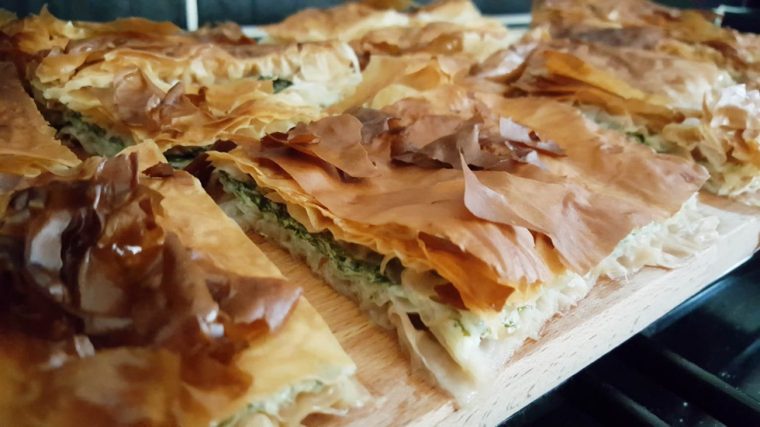
It is definitely possible to take some measure of control over your diet during this training period!
Choose your food wisely when you do have a choice. Resist the urge to buy fast food for lunch every day, say no to the pastries in the bakery, and avoid processed snacks during break times. Easier said than done, I know!
Don’t feel the need to eat everything that you’re served. While it’s polite to try new foods at least once, don’t feel the need to eat dishes that you dislike or to eat absolutely every last grain of rice on your plate. Take cues from your host family members, and don’t be afraid to ask for smaller portions or express that you’d rather not eat certain foods.
Offer to cook for your host family. One way to control what you’re eating is to cook it yourself! If your host family is comfortable with you using the kitchen, cook up an Albanian version of your favorite recipes from home! They’ll appreciate the effort, and it’s a nice way to share your culture.
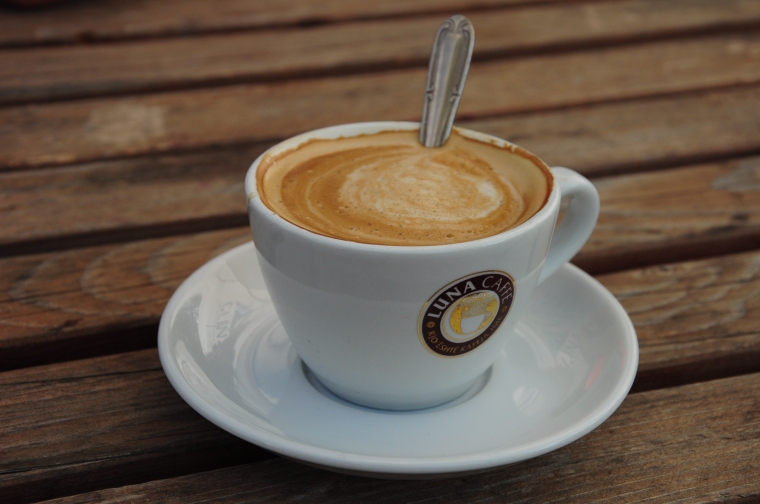
TIP #2: Watch your sugar intake
Albania is known for its coffee culture, but when I first arrived in country, I still wasn’t used to the bitter taste of coffee. I poured at least half a packet of sugar into each tiny cup, and I drank at least three cups of coffee per day. When I added my new coffee habit on top of the little sweets that I’d treat myself to throughout the day, the sugar really started to pile up.
I do my best to choose healthier options throughout the day.
I’m not a dietitian by any means, and I can’t tell you exactly how much sugar is too much, but I do my best to choose healthier options throughout the day. Rather than drinking three cups of coffee with sugar each day, I’ll drink a single cup in the morning without added sugar and order water in the afternoons and evenings.
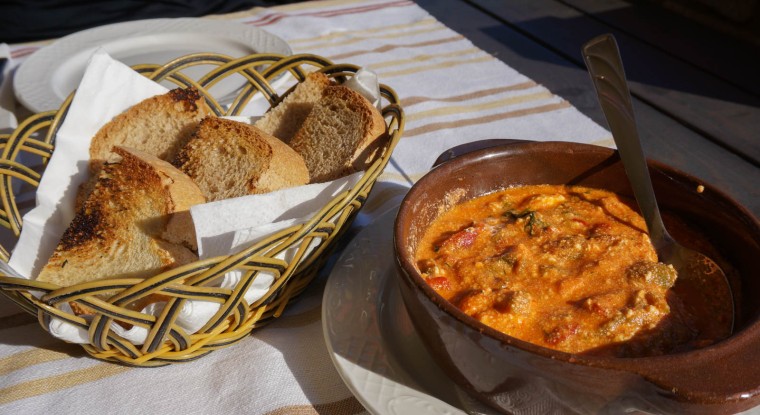
TIP #3: Beware of the Bukë Belly
Ah, the dreaded Bukë Belly. It haunts every Peace Corps volunteer who finds that his or her jeans don’t fit quite like they used to anymore. Like I mentioned earlier, bread (or bukë) is found everywhere in Albania, and it’s cheap, fresh, and delicious! As a bread-lover it’s incredibly tempting to reach for a few slices at every meal.
As a bread-lover it’s incredibly tempting to reach for a few slices at every meal.
Since coming to my permanent site, I’ve been careful about how much bread I’ve been eating. I’ve made it a rule to not buy any bread for my apartment and to avoid any extra bread that’s served during meals (or at the very least, I’ll eat all the other food on the table first and wait to see if I’m even still hungry before grabbing a slice).
It was incredibly hard to give up bread at first, but my tightening jeans made it a necessity. And I haven’t given up on all carbs entirely – I still dig in to a healthy serving of byrek, pizza, or pasta when available – but at least when I’m cooking for myself I try to avoid falling back on sandwiches, spaghetti, and rice dishes.
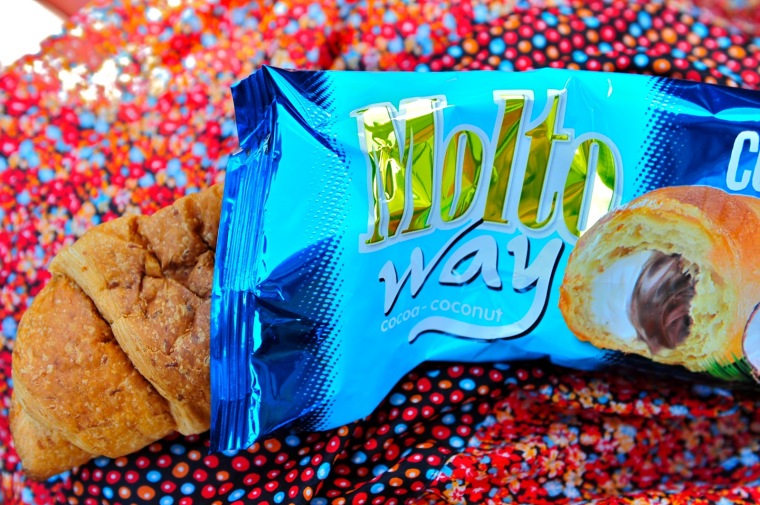
TIP #4: Avoid processed foods
Like bread, processed foods are inexpensive and ubiquitous. In every store, I’m tempted by the many different kinds of chocolate bars, chips, and snack items. This is something that I struggled with in America, as well, and unfortunately it’s pretty much unavoidable no matter where I go in the world.
The solution? Less trips to the supermarkets and more trips to the local produce markets!
I try and limit the number of times I go to the supermarket and instead frequent the many vegetable and fruit stalls that are around my neighborhood. When I don’t have unhealthy food in the house, I have no choice but to eat in a way that’s better for my body – and ultimately for the environment as well! (Just think of all the plastic packaging!)
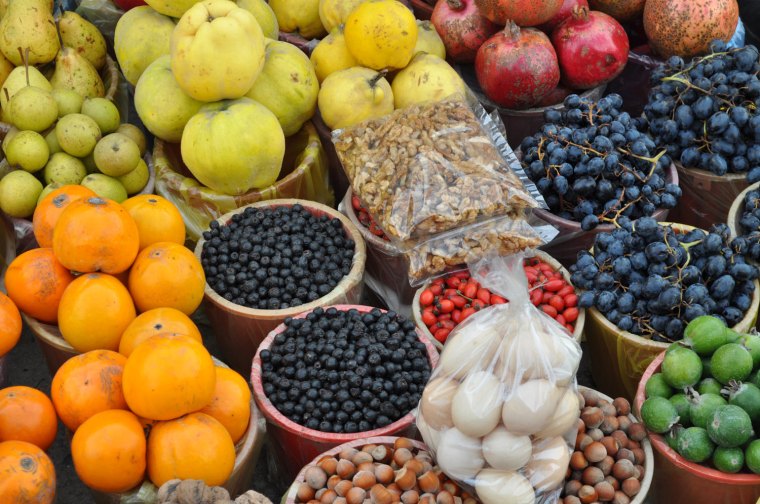
TIP #5: Take advantage of fresh, local produce
Finally my last tip is to take advantage of the wonderful variety of fresh, local produce! In my permanent site, there is a large vegetable market and many smaller shops that sell fresh produce as well!
The seasonal availability of foods challenges me to use new produce in interesting ways!
Sure I’m not always able to get the exact vegetables I want exactly when I want them (I didn’t realize how much I liked spinach until I couldn’t eat it all summer), but the seasonal availability of foods challenges me to use new produce in interesting ways!
I’ve also fallen in love with some fruits and veggies that I’d never eaten before – like fresh figs, pomegranates, and leeks!
If you don’t know how to cook, you’ll have plenty of free time to learn, so bring ingredients from home that you know you can’t live without to spice up your dishes. You can never go wrong with too much peanut butter, Asian spices, or hot sauce!
Check out my other posts on staying healthy in the Peace Corps:
Featured Image: Flickr

Such wise advice. Do you start your day with Nexlevol Power Notes too?